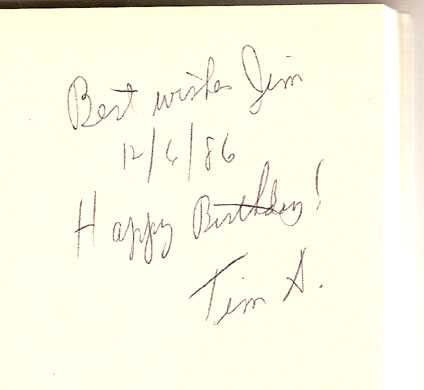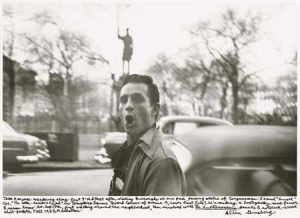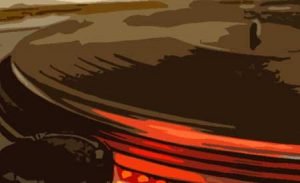Books make thoughtful, personal gifts. Often, the giver would like to write a short note to the recipient inside the book; this is called a gift inscription.

If you’re giving a first edition or other book which is valuable or may increase in value, it is best not to inscribe it. Collectors want a book to be in its original condition, as close to perfect as possible. A gift inscription or any other writing or marking – no matter where on the book, or how neatly it’s done – detracts from the value.
As an alternative to signing a collectible book, I’d recommend just giving the book with a card enclosed. Or, you could tuck a note between the cover and front endpaper (on acid-free paper, so it won’t damage the book over time).
Cutting the price off the dustjacket (price clipping) will also reduce value. Don’t worry about this. Everyone knows how much a new book costs these days, and for older books, the recipient will know you didn’t pay the price on the dustjacket any way. They will want to receive the book and dustjacket in their original, intact states.
When not to worry
If the book you’re giving is going to be very well-read (thereby reducing any potential collectible value), or has little chance of ever becoming a collectible, you can likely inscribe it without worry about its future value. In this case, the front free endpaper (the first page facing the front cover) is the most common place to do so.
Do you have a connection to the book?
Exceptions to this rule would be if you are the book’s author or in intimately connected to it in some way.
If you’re the author of the book, your inscribing it will enhance its value, so go ahead and sign it!
If you’re closely connected to the author or in some other way to the book (e.g., editor, publisher, or even its subject), your signature will likely enhance the book’s value as well. Such a book is called an association copy.
If you’re an author wondering where to sign a book, please see our article On Signing Books.
There’s more on the author signatures, inscriptions, association copies, and how they affect value on our Author Signatures (Illustrated) page.




Richard Moon says
Very informative as a new collector of books thank you.
Denise says
Glad you found the article helpful, Richard!